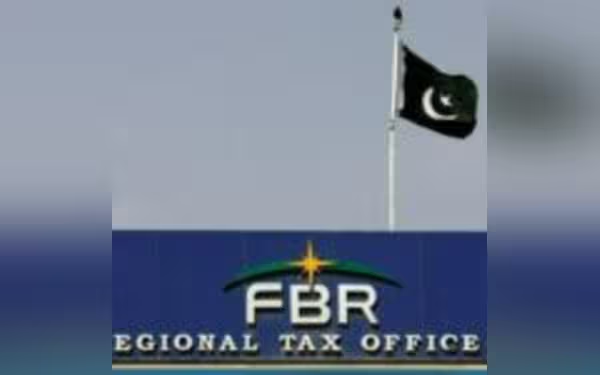Saturday, November 16, 2024 07:34 PM
FBR Introduces Fossil Fuel Surcharge to Enhance Revenue
- FBR to implement new fossil fuel surcharge.
- Targeting 13.7% tax-to-GDP ratio by 2028-29.
- Reforms aim to broaden revenue sources nationwide.
 Image Credits: pakistantoday
Image Credits: pakistantodayFBR introduces a fossil fuel surcharge to boost revenue, targeting a 13.7% tax-to-GDP ratio by 2028-29 as part of IMF commitments.
The Federal Board of Revenue (FBR) is set to introduce a new surcharge on fossil fuels, a move aimed at boosting the country’s revenue. This initiative is part of Pakistan's broader commitment to the International Monetary Fund (IMF), which has set a target for the nation to achieve a tax-to-GDP ratio of 13.7% by the fiscal year 2028-29. The FBR's strategy to meet this ambitious goal includes not only the new fossil fuel surcharge but also efforts to expand provincial tax bases and enhance non-tax revenues for the federal government.
According to recent reports, the FBR has outlined a framework in collaboration with the IMF, which expects the board to contribute 11.1% of the tax-to-GDP ratio through improved policy and enforcement measures. This is a significant undertaking, and the FBR is receiving support from the World Bank to advance its Revenue Mobilization Program, which is designed to implement these necessary reforms.
The Medium-Term Fiscal Framework (MTFF) proposed by the FBR includes a series of reforms aimed at broadening revenue sources at both federal and provincial levels. Among the key initiatives are the elimination of preferential tax treatments, the extension of Personal and Corporate Income Tax (PIT and CIT) to sectors that have previously been untaxed, and an increase in the top tax rate to 45%. These changes are expected to create a more equitable tax system and ensure that all sectors contribute fairly to the national revenue.
Additionally, the FBR plans to simplify the Personal Income Tax system for both salaried and non-salaried individuals. This simplification is crucial as it aims to make tax compliance easier for citizens. Furthermore, the expansion of the federal excise duty (FED) and a comprehensive overhaul of income tax and withholding tax rules related to motor vehicle registrations are also on the agenda.
The introduction of a fossil fuel surcharge by the FBR is a significant step towards enhancing Pakistan's revenue generation capabilities. While these measures may seem stringent, they are essential for the country's economic stability and growth. As the FBR moves forward with these reforms, it is imperative for citizens to understand the importance of tax compliance and the role it plays in national development. By contributing fairly, every individual can help pave the way for a more prosperous future for Pakistan.













